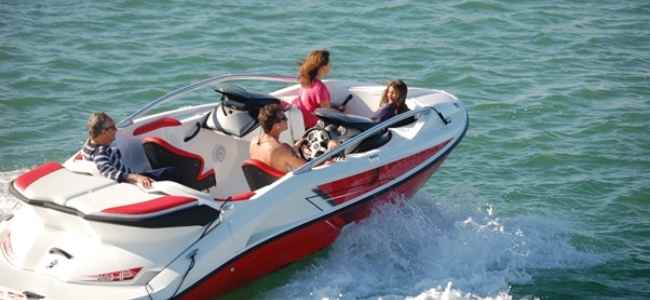Choosing the right type of battery is crucial, and choosing the wrong type for your boat could destroy the battery and cost you money.
If you’re here, you’ve probably heard the terms marine battery, deep cycle battery, and maybe even deep cycle marine battery.
Chances are that you’re thoroughly confused about their differences, or wondering if there’s really much of a difference at all.
Don’t worry! This article will clear things up, help you make the right decision, and put your research on marine batteries to rest.
What Are Deep Cycle Batteries?
A deep cycle battery uses thick, solid lead plates allowing the battery to discharge down to 80 percent repeatedly without causing any damage.
This differs from starter batteries that only discharge a small part of their capacity and deliver high-current bursts to crank engines.
True deep cycle batteries are most commonly used as backups in industrial settings. They’re most likely not what you’re looking for, but are probably responsible for some of the confusion you’ve experienced.
What Is a Marine Battery?
Marine batteries can be deep cycle batteries and they can also be starter batteries. They’re usually a combination of both called dual-purpose batteries.
Dual-purpose marine batteries typically use plates heavier than an ordinary starter. The plates are also less thick than that of a true, industrial deep cycle battery.
When it comes to boat marine batteries you can use a starter for inboard and outboard engines, but a deep cycle battery would be required to power a trolling motor.
Types of Marine Batteries
A lithium marine battery is a lightweight option that is perfect for powering trolling motors. Lithium will require a specific marine battery charger because they are not filled with lead-acid. This provides a more steady charge.
An interstate marine battery is a popular option for those needing enough power to start a trolling motor and run multiple accessories like fish-finders. These batteries do not require a running engine to function.
Though labeled as “marine,” these batteries can be used for other purposes such as RVing, personal watercraft, ATVs, Go-Karts, and many other vehicles.
A typical Walmart marine battery will cost between $64 on the low end and $375 on the higher end.
How Long Does a Marine Battery Last?
A marine battery will typically last you between one and six years. It really depends on how well you maintain the battery, the frequency of charging, and the temperature and conditions where you use and store the battery.
Factor in how often you plan to use your battery and the climate you live in when deciding on what type and price range makes the most sense for you personally.
There Really Isn’t a Difference
The terms marine battery and deep cycle battery are quite interchangeable and often mean the exact same thing.
There’s a very slim chance that you’d mistakenly buy an industrial version of a deep cycle battery for your boat, or at least you won’t now that you’ve read this article!
If you have enjoyed this post, please check out our blog for more useful information and helpful tips.


